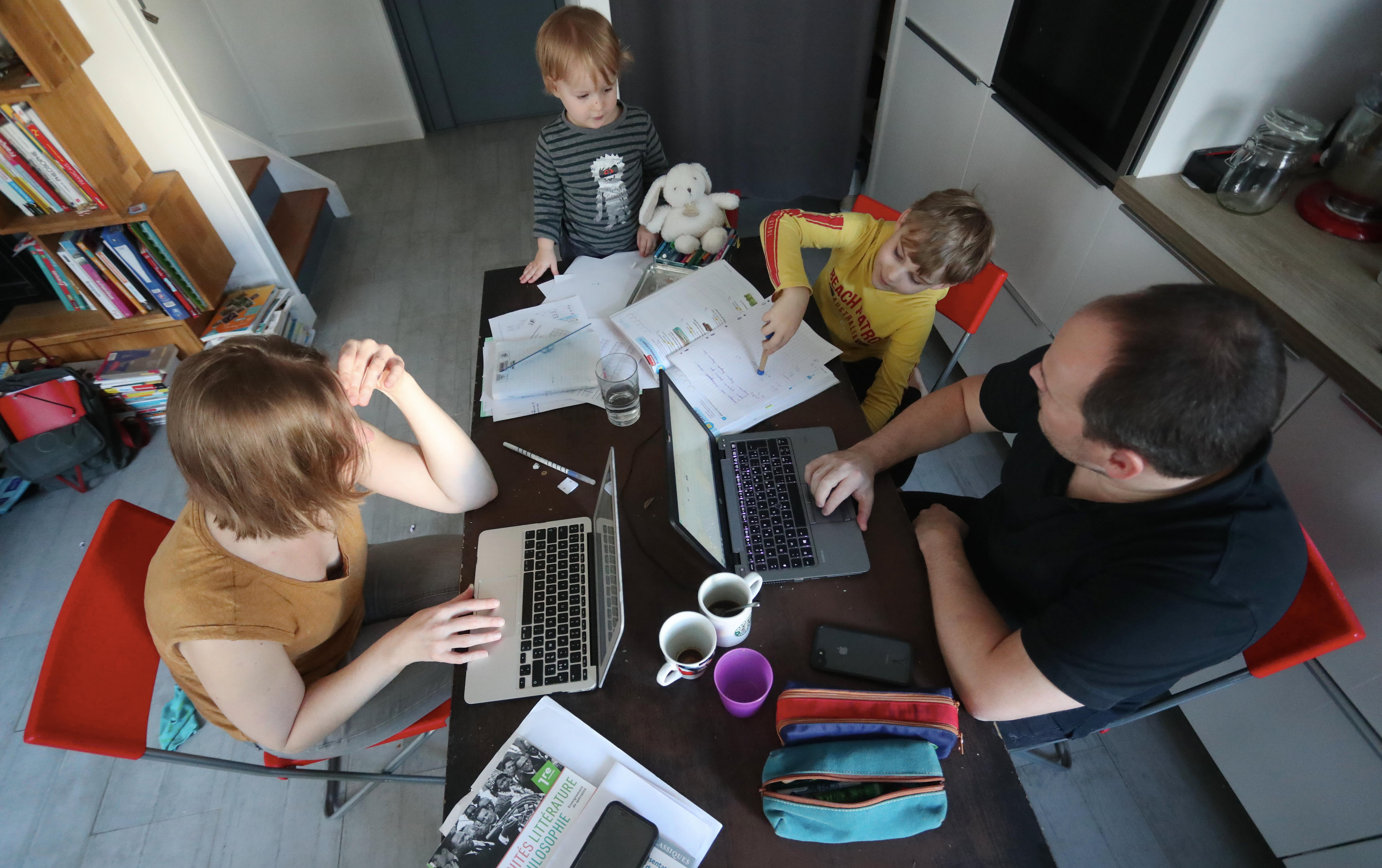Parents work from home with their two sons due to the coronavirus outbreak in Paris in 2020.
Xavier Laine | Getty Images News | Getty Images
People have changed their minds about working from home since the coronavirus prompted office closures last year, Cisco CEO Chuck Robbins said during an earnings conference call with analysts on Tuesday. At first people liked their new, distributed arrangements, but now some people are yearning to be back at work, he said.
Cisco, whose networking switches, phones and wi-fi access points are installed at corporate sites, is among the companies that can benefit from a widespread return to the office. The state of the pandemic remains in flux, and Robbins’ words communicate the lack of certainty around the aftermath and how that will affect business.
“I think we sort of moved into that phase where people actually struggle mentally, people are — they’re not enjoying it,” Robbins said.
Just as Robbins regularly talks with customers, he also communicates with Cisco’s own workers. On the call he brought up input he had received recently to make his point.
“One of our employees said to me the other day, ‘I don’t mind the option of working from home. I don’t like being forced to work from home,'” he said.
Cisco’s workers have other pressures to deal with. In August, after reporting three quarters of declining revenue brought on by business challenges, Cisco, once the most valuable company in the world, announced a cost-reduction program that included offering voluntary early retirements. Some Cisco employees in Australia and New Zealand have returned to offices, while in North America workers won’t be returning at least through the middle of the summer, a spokesperson said.
Robbins has his own idea about the role of the office beyond Cisco.
“I really believe it’s going to be hybrid where people are going to work from home and everybody is sort of landing here where they’re going to work from home three days a week and work from the office two days a week and vice-versa,” he said. “The question is what accommodations does that lead to for customers based on employees’ concern over space issues, concern over future pandemics or other concerns. That’s what we just don’t know yet.”
Tech companies are increasingly promising more flexibility around remote work when the pandemic ends. On Tuesday, Salesforce announced the majority of its employees would be working on a “flex” schedule with one to three days in the office per week, while Twitter and Dropbox have both told employees they can work from home permanently.
Nominations are open for the 2021 CNBC Disruptor 50, a list of private start-ups using breakthrough technology to become the next generation of great public companies. Submit by Friday, Feb. 12, at 3 pm EST.
WATCH: Cisco CEO defends revised Acacia deal, calls new valuation ‘reasonable’
